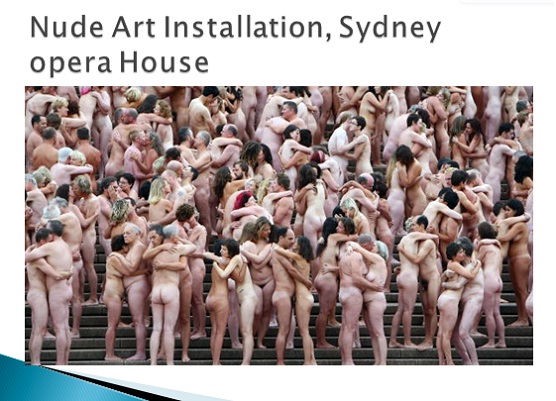That’s the question lawyer Harry Roque posed to the Supreme Court justices to underscore the dangers of the Cybercrime Law. He referred to the three photos posted here:
There were a number of compelling issues that were highlighted in last Tuesday’s oral arguments on the Cybercrime Law (R.A. 10175) at the Supreme Court. One was its being unconstitutional because of overbreath as forwarded by Atty. Harry. Roque.
The online Free Dictionary explains that “In American jurisprudence, the overbreadth doctrine is primarily concerned with facial challenges to laws under the First Amendment.”
The First Amendment (to the United States Constitution) “prohibits the making of any law respecting an establishment of religion, impeding the free exercise of religion, abridging the freedom of speech, infringing on the freedom of the press, interfering with the right to peaceably assemble or prohibiting the petitioning for a governmental redress of grievances.”
Roque cited Section 4 (C)1 of the Cybercrime Law which is about Cybersex which lists among punishable acts Cybersex.
The law defined cybersex as “The willful engagement, maintenance, control, or operation, directly or indirectly, of any lascivious exhibition of sexual organs or sexual activity, with the aid of a computer system, for favor or consideration.”
Using the “void for vagueness” doctrine, Roque asked, “What is defamatory? Who is liable for libel? What are justifiable motives? What are good intentions? What is lascivious?”
Then he presented acclaimed works of art with nude figures from the Museum of Modern Arts (New York), Tate Gallery in London, and Sydney Opera House, asking the justices , “Are these slides lascivious?’
Roque noted that the Cybercrime Law didn’t even use the word “pornography.”
Another argument against the Cybercrime Law was the unconstitutionality of the libel provision.
Also included in the list of punishable acts is Libel . Section 4C (4) of the law states “The unlawful or prohibited acts of libel as defined in Article 355 of the Revised Penal Code, as amended, committed through a computer system or any other similar means which may be devised in the future.”
Roque pointed out the judgment of the International Covenant on Civil and Political Rights that in the case of Alexander Adonis who was imprisoned for two years for libel that the penalty of imprisonment is incompatible Article 19 of the ICCPR which guarantees the right to freedom of expression.
The Philippines has signed and ratified the ICCPR.
Asked by Carpio what happens when a government ratifies an international treaty, Roque replied, “It becomes part of domestic law.”
Carpio noted that the Cybercrime Law may be unconstitutional since it adopted the libel provision of the Revised Penal Code (RPC) which may no longer be in conformance with Supreme Court decisions and international law.



Ay, mas grabe pa dyan ang liberal sex art display in the city center of Copenhagen, Denmark.
Interesting how the SC decides on this matter, daming pinong detalye na naguguluhan ako. 🙂
Consolidated Comment of the Solicitor General
http://sc.judiciary.gov.ph/features/oral_arguments/cybercrime/index.php
The SolGen’s turn to face the High Tribunal will be on January 22.
Jeff Koons is famous for his post-modern artwork which he creates in a series of paintings, sculptures and photographs. Some of his huge creations are those which are paraded in Macy’s Thanksgiving Day parade in NY. But the most controversial series is Made in Heaven showing Koons himself and popular Italian pornstar-later-parliament member Ilona Staller, in explicit sex photos displayed in huge billboards and some sculpted in glass, ceramic, stone, etc. like the one shown above. (Remember Cicciolina, the Italian MP who campaigned nude?) Koons later married Staller but the marriage ended in divorce and a bitter child custody battle.
Koons’ website: http://www.jeffkoons.com/site/index.html
Fearless forecast: Carpio will file a dissenting opinion.
He will rule that libel under the Revised Penal Code is unconstitutional. The opinion will run along the lines of New York Times v. Sullivan and its progeny.
Why a dissenting opinion, because there will not be enough votes to declare libel under the RPC as unconstitutional. I am finding difficulty in locating other votes.
If Mendoza and Bienvenido Reyes have the MABINI stripes of Rene Saguisag, as many Bedans have, they may vote with Carpio.
The rest, at most, they will vote against some provisions of the cybercrime law. The takedown provision is almost guaranteed to be taken down.
Bottom line, you will be sued for your cyber comments under the libel provisions of the RPC.
But there is the rumours in congress that Libel and Slander under the RPC will be decriminalized where it should be. Canada just recently passed its own version of Cyber Law authorizing its Intelligence Agencies to tap on Internet data for criminal activities such as Terrorism Child Pornography and trafficking and Hate crime. And Commercial crime like E scams which is quite rampant now with identity thief. But when it comes to adult XXx it is Patents Beware. Better get a Safe browser software. One time our 5 year old stumble upon a porno site and called everyone attention to what he just send. His mom made sure the browser have some sort of Filter now that he is two years older. and it is all Free.
Our freedom of expression as guaranteed has only few limits under the Criminal code. Promoting Hatred. And compromising the National Security. All the rest will fall under the common Law of libel and slander. You do your fellow some injury with your mouth or words you settle it out or the court will do it for you. An old fashion but effective way of settling an account and now a days could in the MILLIONS.
Bottom line, you will be sued for your cyber comments under the libel provisions of the RPC.-SNV
Naku, nakakatakot naman, SNV.
Ang hirap naman lips are sealed forever because of RPC. Ano na lang pag-uusapan natin? Baka makanti lang sila, i-libel na tayo. Scary nga.
Any chance that like-minded justices will go with J. Carpio especially with regard to the RPC Art. 354 on Libel?
J. Carpio touched on its possible unconstitutional nature.
“Sex without contact”
Cyber Adultery in the 21st Century
http://raissarobles.com/2013/01/16/sex-without-contact/
@ 9 sex without contac…yes but in a Country Like Iran that could be a crime of Adultery and of your a woman then the First stone will be followed by the mad crowd. Of course it is ok and it is BIG business in North America. Most of this Webs catering to this type of business offer Free Adult movies to entice viewer to go their Virtual Sex sites and Local Sex services. And it entirely legal for Adults. If is strictly Monitored by Cyber Police..for Child Pornography and nonconsensual Sex and for Public Health. It is Criminal Offense for Knowingly Spreading Sexually Transmitted disease and if resulted in Death could be a Case of HOMICIDE.
And of course between lovers, with smart phones they can have Cyber sex anytime, anywhere, iPhone has the Feature FaceTime and its so “real time”. Many of my friends who have lovers I other parts of the country have fun without Necessarilly leaving home.
“There is nothing more lewd than the mind of a prude” – Charles Simic
Agree, mb #12.
An invitation…
http://www.interaksyon.com/infotech/cybercrime/top-ten-questions-by-sc-justices-on-the-cybercrime-law
bay, I followed your interaksyon link and found out mas magagaling na di hamak mga commenters kesa sa mga SC justices about the issue.
# 14
De Castro’s question 5 is actually the answer to Peralta’s question 4.
If the lawyer was not able to answer Peralta, De Castro was in fact feeding the lawyer.
Now you see how they will vote. Abad and Leonen may have issued disclaimers, but you need to take the disclaimers with a teaspoon of salt.
The happy balance may prove to be tilted towards the government side. Let’s wait and see.
Besides, concerns will be tackled one by one. Baka may panalo din naman…
I am still wondering that up to now nobody accused of LIBEL under the Provision Challenge the Unconstitutionality of the law based on the Bills Of Rights guarantee of the Freedom of Expression and of speech. That is the Process that has many Laws been Stricken Out of the books by the Courts. Just Recently as Two days ago..the SC of British Columbia Struck out part of the Human Traficking Statute when it Ruled in favour of the appeal of an accused trafficker as the law could be used indiscriminately including prosecuting those who works for the welfare of the Victims and Send the legislation back the Federal Parliament to test it for Constitutionality before amending…when the Legislation comes back it will be close to Perfection. It will be tested against all the precedent case tests as established by the SC of Canada including the Now Famous OAKES Test.
Peralta – Question 4
De Castro – Question 5
If this were volleyball, De Castro was setting up the ball for the lawyer to spike.
Carpio – Question 6
De Castro – Question 9
Another good set-up by De Castro. Were this basketball, she would be a good assists man.
The lawyers should thank De Castro for the good assists.
I think the lawyers, Rodel Cruz, a senior partner to CVC Villaraza Cruz Marcelo and Angangco, on the power given to the Department of Justice to restrict or block access to computer data that violates the Anti-Cybercrime Law, and JJ Disini who argued against allowing law enforcement authorites to collect traffic data in real time were able to “spike.”
They were good and showed superior grasp of the issues they were arguing about.
The one who was not impressive was Julius Matibag of the National Union of People’s Lawyers on the provision which punishes internet users for conspiring in a cybercrime offense.
Data is never singular. The singular is datum. .
Abad – Question 3
On Section 19, also known as the “takedown clause”: “Cannot the government stop a crime in progress as a legitimate exercise of police power?”
sax
Let us put this in the context of the physical world, Your Honor, there being settled law and precedent with respect to print media.
In the case of the alleged libelous article by Louie Beltran on the late President Aquino, would the RTC have had power to stop publication of the newspaper? Would the RTC have had power to stop publication of the article had the complaint been filed before press time?
This Honorable Court would have ruled in the negative, this being a case of prior restraint. So why should the DOJ be granted powers greater than that of a court?
Again, we submit that speech must be fought with speech, not government muscle. A statement from the Press Secretary, or even a press conference would have sufficed to put the lie to Beltran’s article.
In the case of a virus, how difficult is it, really, to go to a Judge to get a warrant, to search and confiscate.
In the case of say, child porn, how difficult is it, really, to show the judge the pictures and get a warrant? In fact, the prosecutors can go to the Judge and show on their iphones, in real-time, the offensive material.
Our fear, Your Honor, is that this power may be abused.
Some prosecutor may use it to block purely political material, which will be in violation of the freedom of expression. Note, Your Honor, that the grant of power does not distinguish between the crime of libel, which is difficult to ascertain, without trial, and child porn. And as we stated earlier, even in the case of clear crimes like child porn, one can easily, and speedily get a warrant from a Judge.
There is clearly, no justification, Your Honor, in granting the DOJ powers reserved exclusively for the Courts.
Leonen – Question 7
There is a difference Your Honor. Data is submitted to Amazon voluntarily by the buyer. I repeat, Your Honor, voluntarily. (Walang bold sa pananalita, so you have to say, I repeat)
When I buy from Amazon, I give them my name and address for them to effect delivery. I also give them my credit card details to effect payment. If I buy many times from Amazon, it sees a pattern in my behavior, so it uses that info to try to offer me other items. There is nothing illegal nor coerced there Your Honor.
This is no different from my walking into a sari-sari store every Friday and getting three beers and a can of 555 sardines. Next time I walk in, the store owner may offer me, “Subukan niyo naman po yung xyz sardines.”
Similarly, google sees what items I search for, so it uses that info, to give me advertisements. If I search for New York criminal law, for instance, it gives me advertisements of New York criminal defense lawyers, as well as criminal law books.
That is no different from my walking into a mall and asking the information desk “Meron bang Ling Nam dito?” And the reply may be, “Wala po, pero and Chow King nasa third floor.”
In both cases, Your Honor, I voluntarily gave information, and that information was used to offer me services, not to snoop on me.
But this law is giving the DOJ the power to coerce the vendors to yield to the DOJ, info I may not want to share. So this power produces two unconstitutional effects, Your Honor: the DOJ’s invasion of my privacy, and the DOJ’s coercion of a vendor to surrender that info.
The balance, Your Honor, is in the voluntary disclosure of info to Amazon. This law, in fact, creates the imbalance; by giving the DOJ the power to snoop.
Abad – Question 5
Again, let us go to the physical world, Your Honor.
If I take the article of Louie Beltran, and go to Plaza Miranda and shout, “Hoy, gusto ko ang pahayag na ito?” Would that constitute the crime of republishing? I submit not Your Honor. So what applies in the physical world, should apply to cyber space as well.
True, the internet magnifies the effect. But had this occurred in the late 60s, when the xerox machine was just invented, would the Court have ruled that xerox copies are a republication, and therefore, a separate offense of libel?
Sorry. Question 10 pala yon.
Leonen has not done any internet shopping yet. 🙂
On Thursday, January 22, the tables will be turned.
Expect De Castro to ask thepointed questions. Now it is the turn of other members of the court to ask set-up questions for the Sol Gen to spike.
Now you see how the vote is shaping up, for the participants. Mahirap pa ring sabihin, how it will be decided, because there are more justices who are not participating in the oral argument.
Hearing today was cancelled as Solicitor General Francis Jardeleza had to be at the DFA for the press conference on the decision of the Philippine government to question China’s nine-dash line map before the UN Court.
Where is Louie Biraogo?
The COMELEC has issued a resolution instituting a right to reply.
tribuneonline.org/index.php/headlines/item/9621-comelec-breathes-life-into-%E2%80%98right-to-reply%E2%80%99
I do not see this in the enumeration of powers of the COMELEC in the Constitution.
The relevant powers, although tangential, are the following:
This is an easy one to win in the Supreme Court.